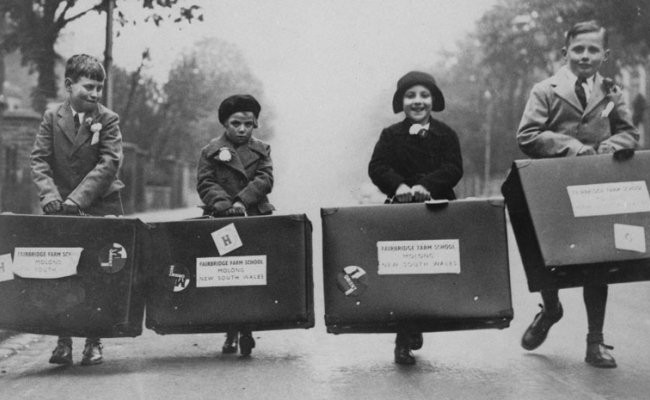On Friday 19 April, 1929, Adelaide’s The Advertiser ran an article titled ‘Undesirable Immigrants’. It read:
The Minister for Home Affairs (Mr. Abbott) stated today that since January 1 he had issued orders for the deportation of 46 immigrants … Of the total number deported in the period mentioned, more than one-half were mental cases.
Apart from the striking coincidence of the Abbott surname – as an aside, it was Aubrey Abbott from the Country Party – the article reveals a sad reality: Australia’s policy of deporting the mentally ill has not changed in almost a century. The language is typical of the reporting of the time, when articles proudly boasted that mentally ill immigrants were ‘Australia’s Rejects’, but the present issue is not based in language (even if ‘mental cases’ hits the twenty-first-century ear harshly). Indeed, the issue is not even that we used to do this. After all, Australia was not the only nation to discriminate against immigrants with mental illnesses – Canada did too. Rather, it’s an issue because we still treat immigrants with mental illnesses in the same way. Case in point: Maria Sevilla and her young son, Tyrone.
Last year, Sevilla’s application for a 489 (‘Skilled Regional’) visa was rejected because Tyrone’s autism was forecasted to be a financial burden on Australian taxpayers. It’s policy pulled straight from the 1920s. In 1928, Rockhampton’s Morning Bulletin reported the ‘alarming figures’ of ‘mental defective migrants’ who were clogging up prisons and mental institutions. Dr CA Hogg, the Inspector-General of the Insane under ‘the Lunacy Act’, referred such ‘mentally defective’ immigrants to the Customs Department so they could be deported.
Hoggs actions – from 1928 – are devastatingly reminiscent of Dutton’s recent actions with the Sevillas: government discovers a mentally ill immigrant, links the case to financial liability and taxpayer dollars, calls for deportation.
More worryingly, it seems there was a time when Australia was becoming (comparatively) more aware of their immigration – or human rights – responsibilities. In 1964, a man who ‘suffered from some mental disorder’ was deported to Denmark – yes, still a bandaid solution that handballs the ‘problem’ to another state. Yet, the ordering judge, Justice Clancy, noted that ‘institutions existed in Denmark with excellent facilities for the treatment of such cases’. It seems then that Australia’s deportation policy was maturing, insofar as we were at least beginning to consider the needs of deportees and their future country.
It’s unimaginable that the Sevilla family would be deported: they have few contacts in the Philippines (only Maria’s estranged husband and brother), and many of their relatives – Maria’s mother, brother, aunty, uncle and cousins – live in Queensland. It would not even be possible for Maria to continue her career as a nurse.
Would Dr Hogg have ordered such a deportation in 1928? Perhaps. But back in 1964, would Justice Clancy have deported Tyrone? Unlikely.
Will Peter Dutton deport the Sevilla family in 2015? The government’s initial decision and an unsuccessful appeal to the Migration Review Tribunal suggest so.
It’s a horrifying decision that recalls attitudes to mental health of a past generation. Hell, even in 1968 we knew that environment was hugely important to autistic children. With this half-century old knowledge, why would Dutton still tear Tyrone from his familiar environment? More recent instances – like the shocking case of Andrew Moore in 2009, or anything contained in La Trobe University’s Removing seriously ill asylum seekers from Australia report from 2007 – reveal two key points: such deportations are not a partisan issue, and that Dutton need not trawl deep in the history books to find examples of poorly considered instances.
In an emotional interview on Channel Ten’s The Project, Sevilla wiped away tears as she appealed to the Immigration Minister: ‘As Tyrone’s mother, I’m asking for your compassion [and] to give Tyrone a fair go.’ Their cause was again aired on ABCs Q&A, where eleven-year-old Ethan Egart showed more empathy than Dutton has in his powerful role that decides people’s fates.
Given the international embarrassment this story has already caused – and not to mention the outrageous hypocrisy that Tyrone’s deportation would expose, given Australia’s reaction to baby Gammy – let’s hope that Dutton can move on from Australia’s deportation policies of the 1920s and show some compassion. Let’s see him act with some of the common decency he mythologised in his maiden speech. After all, this is 2015 – not 1928, or even 1964 – and if primary school students know better than to deport Tyrone, then so should Dutton.



